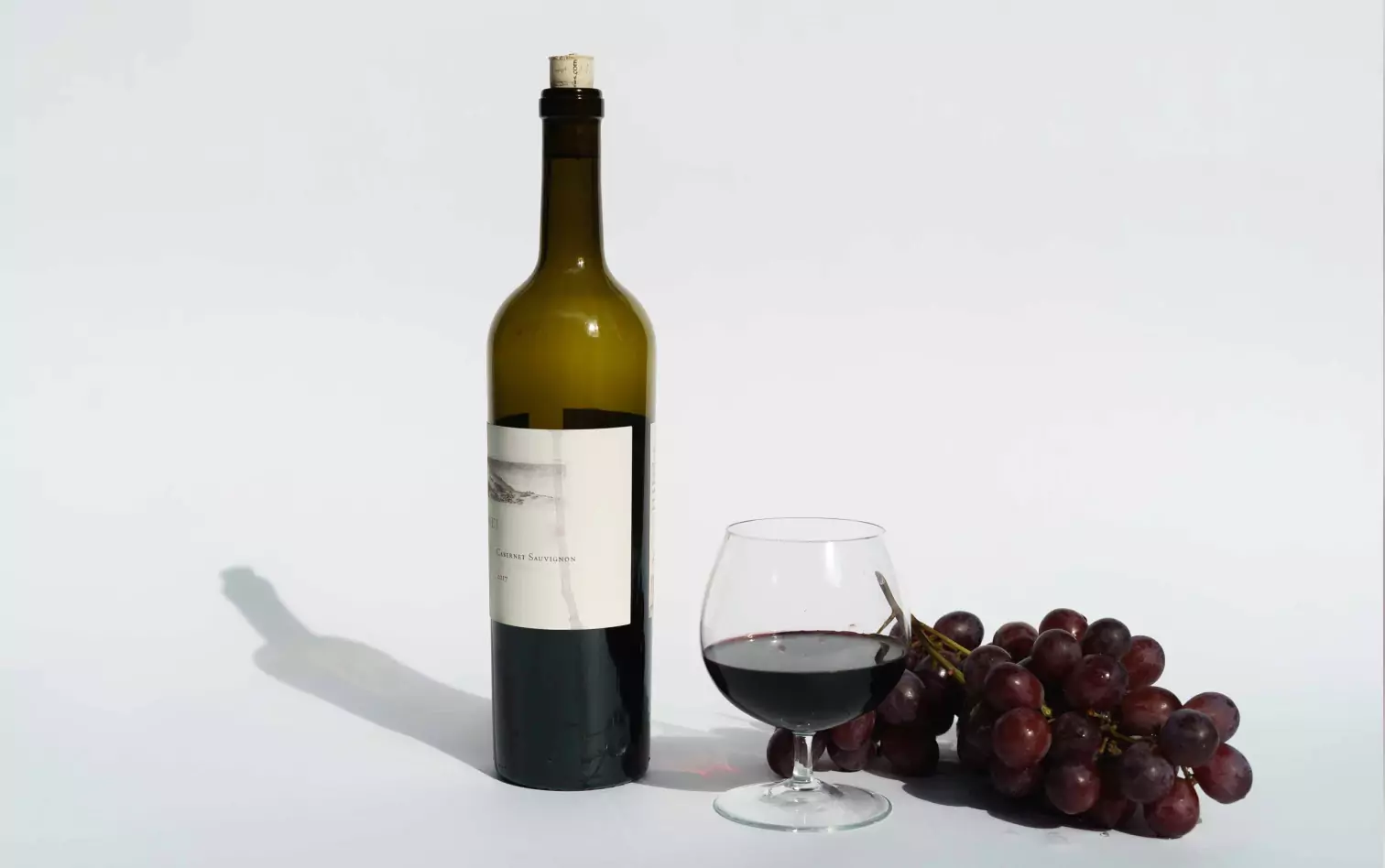Wine and Your Health

Key Takeaways
You’ve probably heard all about the antioxidants in red wine and the cardiovascular benefits of white wine. And if you think adding a glass of wine to your daily routine is a good idea, we don’t blame you!
According to healthcare professionals, studies, and sources like the CDC, excessive alcohol intake can harm your health. But that doesn’t mean you have to shy away from the occasional glass. And moderate amounts of alcohol can even have some health benefits. The benefits of daily wine consumption can be slightly polarizing. Still, it’s no secret that wine itself does contain health benefits. Of course, it’s always best to understand the effects of any alcohol on your specific body before consuming it.
What You Need to Know About Wine

Wine is a beverage made from fermented grapes and is usually between six and 21 percent alcohol volume. There are several types of wine, but the ones you’ll recognize quickest are red wines, white wines, sparkling wines, and rosé.
Some wines, like Chardonnay, Cabernet Sauvignon, Merlot, Pinot noir, or Sauvignon Blanc, are labeled according to the varietal of grape used to make them. Other wines may be a blend of multiple different types of grapes.
It’s interesting to note that the grapes used in wine-making are different from the grapes you eat—they’re smaller and contain many more seeds. There are thousands of different varieties of wine grapes and hundreds of places worldwide where they’re grown. Since wine is a complex beverage, the flavors and textures of various types are endless, making it a versatile and well-loved pairing for social occasions and with any meal.
And there are more reasons to love this alcoholic beverage! You may have heard the phrase “wine is good for your heart.” This phrase dates back to the 1980s in France, where a theory developed that consuming wine while consuming rich food helps lower the rate of heart disease among the French. The view prompted many to begin studying the potential health benefits of wine.
While there isn’t enough evidence that wine prevents heart disease, it does have antioxidants and nutrients. So, it’s an excellent choice to indulge in if you enjoy the occasional alcoholic drink.
What Are Antioxidants, and Why Do They Matter?

When it comes to the potential benefits of wine, there’s a lot of talk about antioxidants—but what are they, and why do they matter? Antioxidants are chemical compounds that protect the cells in your body against free radicals, which are molecules that your body produces after food consumption or exposure to harmful pollutants. Research has seen links from free radicals released from food or exposure to developing chronic diseases.
Without antioxidants, your body would have no way to fight back against the free radicals that it produces, preventing cell damage. Vegetables and fruits are known to be particularly high in antioxidants.
Some common antioxidants include carotenoids, vitamin E, vitamin C, selenium, beta-carotene, and manganese. Most antioxidants occur naturally in fruits and vegetables, but some are artificial and added to our foods.
Wine (specifically wine-making grapes) contains a lot of antioxidants, including polyphenol, resveratrol, proanthocyanins, catechin, and epicatechin. While red wine is a lot higher in antioxidants than other types of wine, others, including white wine, contain some too! So, it’s no surprise that’s the most common of all the benefits people refer to when they talk about how a ‘glass of wine a day keeps the doctor away.’
Different Types of Wine
A process of fermentation, which happens when a chemical reaction makes yeast turn sugar into alcohol and carbon dioxide, helps make wine. Since you make each variety a little differently, each type has varying levels of sugar and antioxidants. Here’s a little more information about a few common types of wine:
Sweet White Wine

Sweet white wines include varieties like Moscato and Riesling. As the name suggests, sweet wines contain more sugar than some drier varieties. Try to treat these wines as a dessert instead of an accompanying beverage.
Sweet Red Wine

Sweet red wines include wines like Port. Again, Port is a dessert wine that contains more sugar than dry or red varieties.
Rosé

This pink-hued wine is a popular choice, and usually produced from red wine grapes. However, the “skin contact” time is shorter than red wine. Because of this, rosé typically has lower antioxidant levels than red wines do.
Dry Red Wine

Dry red wines can be ‘healthier’ than any other variety of wine. These contain the most antioxidants—resveratrol in particular—from any wine because the grape skins aren’t removed when the fermentation happens. Dry red wines include wines like Merlot and Cabernet.
Dry White Wine

Dry white wines contain less sugar than sweeter wines. Still, they do not have as many antioxidants because the skin is not a part of the fermentation process. Dry white wines include Sauvignon Blanc and Chardonnay.
Let’s Discuss the Benefits of Wine

Scientists have been studying wine and its potential benefits for years. Although there’s no one-size-fits-all for diet or lifestyle choice, a lot of the ongoing research is quite promising.
For example, in 2018, the European Journal of Clinical Nutrition released a study that found subjects (both men and women) who drank red wine saw links with lower case numbers of certain types of type 2 diabetes, cancer, atherosclerosis, cardiovascular disease, hypertension, and neurological disorders.
Some Other Benefits
Studies have also found that wine may contain anti-inflammatory properties and have lipid-regulating effects on your body. Here’s a little more about the benefits:
- Polyphenols in red wine and red grapes are linked to improved gut microbiota and gut health.
- A study released by the National Library of Medicine found that certain compounds found in red wine may have probiotic effects on your gut.
- The American Heart Association states that resveratrol has been linked to reducing blood pressure in patients and may increase your good cholesterol.
- There are links between resveratrol and inflammation reduction. A study conducted in 2016 found that this may help people prevent vision loss.
Wine has many benefits, thanks to the antioxidants and vitamins found in grapes. But it’s important to remember that wine is still an alcoholic beverage and may have adverse effects on your health if you consume too much of it.
How Does Wine Affect Diabetes?

For people with high blood sugar, insulin resistance, or type 1 diabetes, the risk factors for alcohol consumption can vary. If you’re on diabetes medications, how alcohol affects you can differ from those who aren’t on any. If you have diabetes and other health issues like obesity, alcohol use can put you at a higher risk.
For most people with diabetes, alcohol use can lead to lower blood sugar or glucose levels that plummet too quickly. It has led doctors to advise people with diabetes to try and avoid alcoholic beverages. It’s because alcohol can make controlling your blood sugar levels difficult, especially if you already struggle to keep your levels steady.
Remember, your liver makes and stores blood glucose after you consume carbohydrates. When you drink alcohol, it inhibits the liver’s process for dealing with blood sugar. When this happens, your liver cannot continue making glucose, and your blood sugar may dip.
So, do you have to forego that glass of wine altogether? Not necessarily. While wine does fall into the category of alcoholic beverages, research suggests it may be a wiser choice if you have diabetes. Try sticking to dryer varieties and avoid sweet vintages. Remember that, like all alcoholic beverages, you should consume wine in moderation. Too much can still result in a blood glucose dip.
If you want to indulge and enjoy a nice glass of wine with a meal, make sure to cover these three bases:
- Make sure you have your diabetes (or any other chronic condition or ailment) under control. Take any prescribed medications on time, exercise, and ensure your meal plan includes a good mix of essential proteins, carbs, and nutrients your body needs. Eating a well balanced snack or meal before enjoying a beverage will help you decrease your chances of having a dip in your blood glucose afterwards [or at least lessen the effect]. If you’re at an increased risk of a condition, but you’re still learning about it, try to avoid alcoholic beverages till you know more about it.
- Try measuring your blood sugar levels after you have a glass of wine (or any other alcoholic beverage) before your next glass of wine. Make sure that you understand how your body responds to alcohol consumption before you end up having a poor reaction. You can use tools like continuous glucose monitors (CGMs) to gather data about your tolerance.
- Speak to your doctor if you have a chronic condition or have questions about existing ailments. It’s also a good idea to check if you’re at risk of type 2 diabetes before consuming alcoholic drinks.
Find the right Nutrisense programto turn insight into progress.
Go Beyond Glucose Data with Nutrisense
Your glucose can significantly impact how your body feels and functions. That’s why stable levels are an important factor in supporting overall wellbeing. But viewing glucose isn't enough. Nutrisense, you’ll be able to learn how to use your body's data to make informed lifestyle choices that support healthy living.
One-to-one coaching
Sign up to access insurance-covered video calls to work with a glucose expert: a personal registered dietitian or certified nutritionist who will help tailor your lifestyle and diet to your goals.
Monitor and measure what matters
With the Nutrisense CGM Program, you can monitor your glucose with health tech like glucose biosensors and continuous glucose monitor (CGM)s, and analyze the trends over time with the Nutrisense App. This will help you make the most informed choices about the foods you consume and their impact on your health.
Find your best fit
Ready to take the first step? Start with our quiz to find the right Nutrisense program to help you take control.

Amanda is a Nutrition Manager and Registered Dietitian, with a Masters in Dietetics from Stephen F. Austin State University. Originally from south GA, she got her undergrad degree from Texas Tech University. She worked at a hospital in Fort Worth, TX, for 4 years as a dietitian, counseling those living with HIV.




